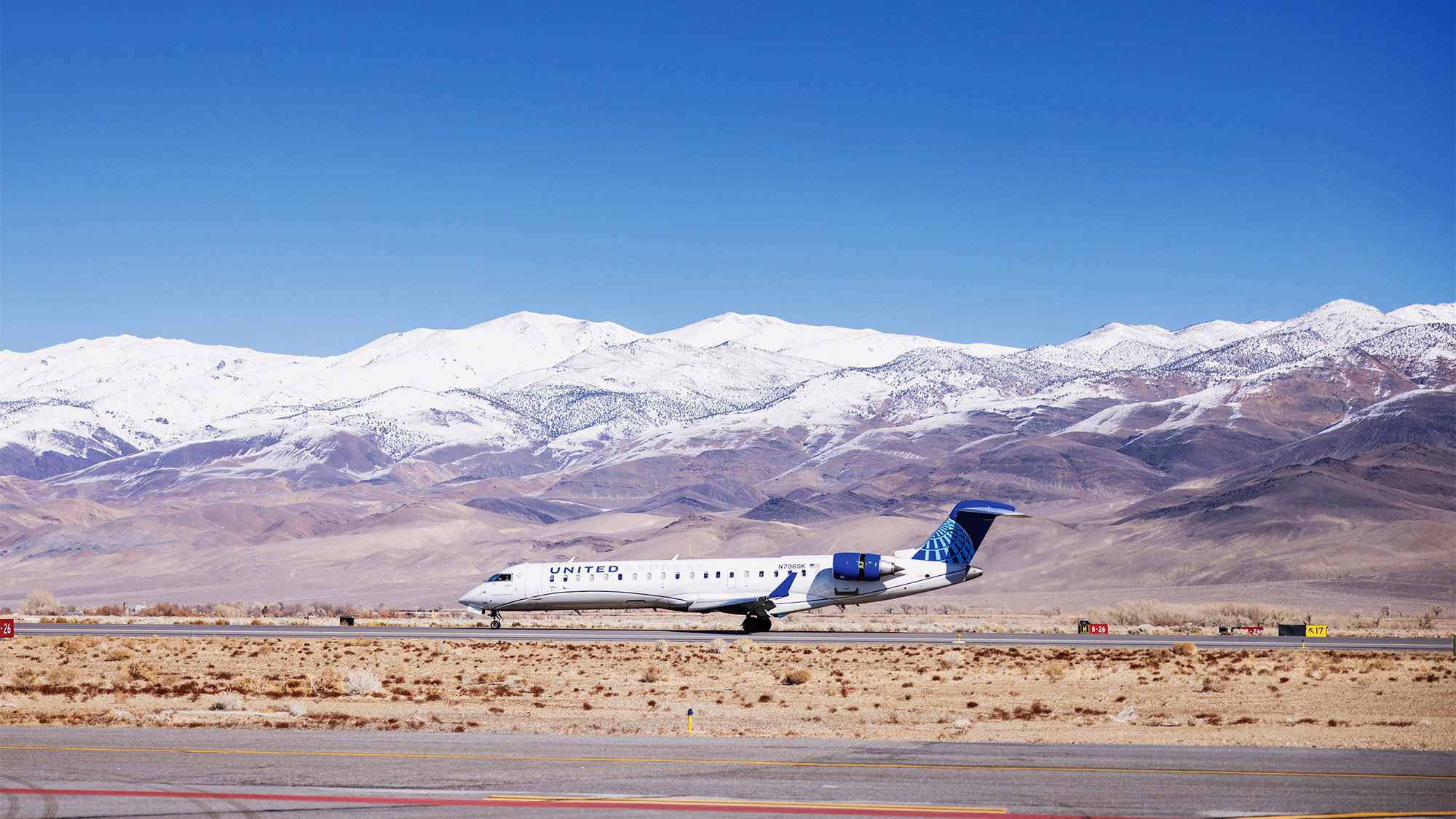
Traveling to Western U.S. ski resorts often involves lengthy drives through dicey mountain passes. But this year it will be easier than ever to fly directly into many of the more remote destination ski communities.
That’s good news not only for skiers and riders but also for the towns and resorts, like Jackson Hole, that work steadfastly to recruit airlines.
“It’s really crucial for us. For years the Jackson Hole Mountain Resort has been thought of as difficult, too cold and too far away,” said Ned Wonson, the Wyoming resort’s marketing director.
According to an analysis of flight schedule data from Cirium, airlines plan to offer a combined 36.3% more seats between January and March 2024 to Western ski towns than they did during the same period of 2019. The seat count will also be up 7.9% from 2023.
The dozen airports included in those numbers offer easy access to Jackson Hole as well as the Colorado resorts of Steamboat, Telluride, Crested Butte and resorts in the Vail and Aspen areas. Also included are airports in or near Mammoth Mountain in California; Idaho’s Sun Valley Resort; and a variety of Montana mountains, most notably Big Sky and Whitefish.
Routes to the larger and more urban airports often used by destination skiers, including Denver, Salt Lake City and Reno, Nev., aren’t included in the data set. Those airports provide relatively quick access into some of the most popular ski mountains in the U.S., including all the big Utah resorts, the Lake Tahoe region and several major Colorado ski areas.
For farther-afield ski towns, airlift is an especially key competitive tool. Growth has been robust in recent years, even as airlines have generally reduced service to small markets across the country.
“It doesn’t hurt that we’re a fairly sexy destination for them,” said John Urdi, executive director of Mammoth Lakes Tourism. “We’re not Topeka, Kansas.”
Naturally, the high-income demographic that visits ritzy ski resorts are a key draw for airlines, especially because it tends to overlap with the corporate and high-income travelers who are most likely to hold elite status at airlines.
For example, the Vail area’s Eagle County Airport tends to draw flyers who are willing to pay more for a quicker travel experience, said Mia Vlaar, the head of economic development for the town of Vail. But such flights aren’t always pricey, she added, especially if clients travel during the week and avoid holiday periods.
United is the U.S. leader in the destination ski market and will offer slightly more than twice as many seats to the 12 destinations included in this analysis during the first quarter of next year than Delta and American, which follow closely together in second and third. Alaska and Southwest are also significant players in the sector.
Despite the commercial appeal that ski towns offer airlines, convincing carriers to serve these small communities isn’t always easy.
For example, this winter United is flying from Denver and San Francisco to Bishop, Calif., about 40 miles from Mammoth Lakes. But in order to win the service, Mammoth Lakes Tourism, in combination with Mammoth Mountain and Bishop’s Inyo County, are providing the airline with a minimum-revenue guarantee of more than $2.3 million.
Last year, said Urdi, those entities paid United $1.3 million to meet that guarantee.
The cost, he said, is worth it, because air travelers are more likely to visit during slow midweek days than drive-in skiers. They also stay longer and spend 60% more per day while in Mammoth.
In Jackson Hole, American, Alaska, Delta and United are offering a combined 16 flights this winter from 12 unique destinations. Though air service is especially vital in Jackson Hole, the concerns some residents have about too many visitors also resonate with JH Air, the privately funded organization charged with recruiting air service and raising money to cover airline minimum-revenue guarantees.
For example, JH Air doesn’t encourage discount carriers to enter the market, said executive director Kari Cooper, because they don’t think budget travelers are a good fit for the high-priced destination.
Meanwhile, Jackson Hole is striving to win service from Boston. However, the scarcity of aircraft that can handle the technical requirements of the local airport’s short runway is one reason that Boston stalwarts Delta, JetBlue and American have yet to be convinced, Cooper said.
In Vail, where the seat offering is slated to be 23.7% higher from January through March compared with the first three months of 2023, air service isn’t quite as critical since Denver Airport is 120 just miles away.
Still, local flights drive a captive market to the Vail Valley and to the Beaver Creek and Vail ski areas.
This winter, Vail has a combined 15 flights on United, American and Delta from 12 destinations, all without offering minimum revenue guarantees, said Peter Dann, chairman of Eagle Air Alliance, which recruits air service for the Vail area.
Dann said Vail’s biggest current goal is to add a second airport from southern Florida to augment Miami.
Boston, Charlotte and Dallas Love Field are also target markets, the latter of which would almost certainly mean entry into Vail from Southwest.
Source: Read Full Article










